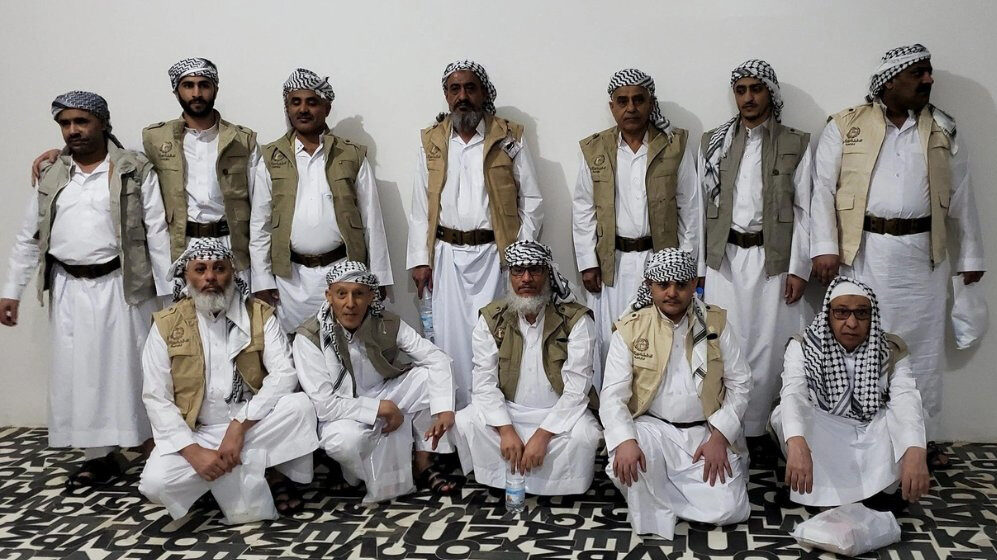On April 8, Saudi Arabia exchanged prisoners with the Houthis (Ansar Allah) in yet another step towards ending the war in Yemen.
Abdul-Qader al-Murtaza, a Houthi official in charge of prisoner exchange talks, said on Twitter that 13 prisoners of the group who were released by Saudi Arabia had arrived in the Yemeni capital, Sanaa. According to the official, the prisoners were released in exchange for a Saudi prisoner the Houthis had freed earlier.
“The detainees released today from Saudi prisons are part of the deal agreed via the United Nations, and next Thursday … the deal will be fully implemented,” said al-Murtaza, referring to a deal brokered by the United Nations last month that includes the release of 887 prisoners.
UN special envoy to Yemen Hans Grundberg said that the deal is one of several developments reflecting movement towards ending the war in Yemen that created one of the world’s worst humanitarian disasters.
The prisoner exchange came as Saudi and Omani officials arrived in Sanaa to hold talks with the head of Yemen’s Houthi Supreme Political Council to end the eight-year war.
Quoting a source in the council, the Houthi-run Saba news agency said the delegations and Mahdi al-Mashat would discuss “lifting the siege with all its repercussions”, an end to aggression, and the restoration of the Yemeni people’s rights, including paying the salaries of all state employees from oil and gas revenue.
The Saudi-led coalition has already lifted restrictions on imports headed for Yemen’s southern ports. The Saudi-backed government based in the south said in a statement on April 7 that commercial ships would be allowed to dock directly in southern ports, including Aden, and all goods would be cleared, with some exceptions.
The Houthis took over Yemen after a successful uprising in 2014. The next year, Saudi Arabia, backed by several Arab countries and the United States, launched an invasion to overthrow the group. Over the next eight years, more than 377,000 people were killed in the war.
According to several reports, the kingdom has finally made the decision to end the war and help broker an intra-Yemeni peace agreement. Riyadh’s decision was directly motivated by the recent rapprochement with Tehran, the main ally of the Houthis.
The end of the Yemeni war will reshape the political scene in the entire Middle East, bringing the axes led by Saudi Arabia and Iran closer than ever. The United States and Israel, who expanded their influence in the region to unprecedented levels over the past decade as a result of the rift between the two axes, will likely be the biggest losers.
MORE ON THIS TOPIC:







make over thirty k a month working part-time. I kept hearing from other people telling me how much money they could make online, so I decided to find out. Well, it was all true and it completely changed my life.s … This is where I started……. Smart.onlinework1.workers.dev
Iran and saudi in peace .heeeheh.. and esraeli judas wide holes have a little pain now. Yeah.
Yess, its good news, and in respect of the current situtation, cudos goes to all of them, in times like this, reconsiliation is the key, peace, is always better, and life returns to normality, it will take time, but thru reconsiliation time can also heal. May our Lord praise and bless the peacemakers in the dawning of an new era. Il raise my glass for the deads, and prays that they, didnt do it in vain.